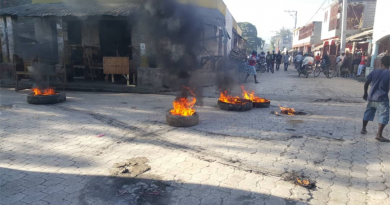Aung San Suu Kyi Determined to Lead Party Despite Constitutional Hurdles
By Angelo Piro
Staff Writer
Nobel laureate Aung San Suu Kyi and her party, the National League for Democracy (NLD), scored a major victory at Myanmar’s first democratic elections in nearly 50 years.
The elections held on November 8 were hailed as the country’s final step towards democracy after the transfer of power from the country’s military junta to the civilian administration under incumbent President Thein Sein.
In a landslide victory, the NLD won 135 of the 224 seats in the upper house of Parliament, and 255 of the 440 seats in the lower house. Suu Kyi herself won a seat in the city of Yangon.
This impressive victory gives Suu Kyi’s party the votes to decide the nation’s next president, who is elected by Parliament. Unfortunately, Suu Kyi herself, despite being the leader of her party, is ineligible to run, as Myanmar’s constitution bars any person with children of foreign citizenship from holding the office, and Suu Kyi’s two sons hold British citizenship.
The Nobel laureate, known in Myanmar as the Lady, was under house arrest by the junta for 21 years until she was released in 2010.
The next president will not be elected until March 2016, due to the complex selection process. Likely candidates are NLD founder Tin Oo, and Suu Kyi’s personal doctor, Tin Myo Win.
Suu Kyi made it clear in an interview with Radio Free Asia that anyone elected to the office will be a figurehead, and that she would lead her party.
Suu Kyi also said that despite her party’s overwhelming victory, she will push for national reconciliation and inclusion in creating a government. She stated in the interview, “Our party has won an overwhelming majority of the seats but we won’t take them all. As I said earlier, we will cooperate with others with the spirit of sharing our success with them based on building national reconciliation. Of course the NLD will lead. It is the mandate the people have given to us at our request.”
Challenges remain for the nascent democracy, and even concerning the elections. One issue is the military being automatically allowed a quarter of all the seats in both houses of Parliament, under a deal struck in the new civilian constitution. Any change to the constitution requires over 75 percent of the vote in both houses, essentially leaving the military as the deciding voice.
Additionally, many key ministries have no civilian oversight. Under the same deal, the defense, home affairs, and border affairs ministries are all headed by those selected by the head of the military, Commander-in-Chief Senior General Min Aung Hlaing.
The elections also revealed continuing ethnic tensions within the state. In the western Rakhine province, almost all of the local Rohingya Muslim population were not allowed to vote in the elections. Many were barred from running as candidates, in a move that Yangshee Lee, the United States Special Rapporteur on Rights in Myanmar, called a threat to the democratic process, reports the Guardian. Despite being a sizable population in the state, only three Rohingya parliamentarians were elected in the November elections.

